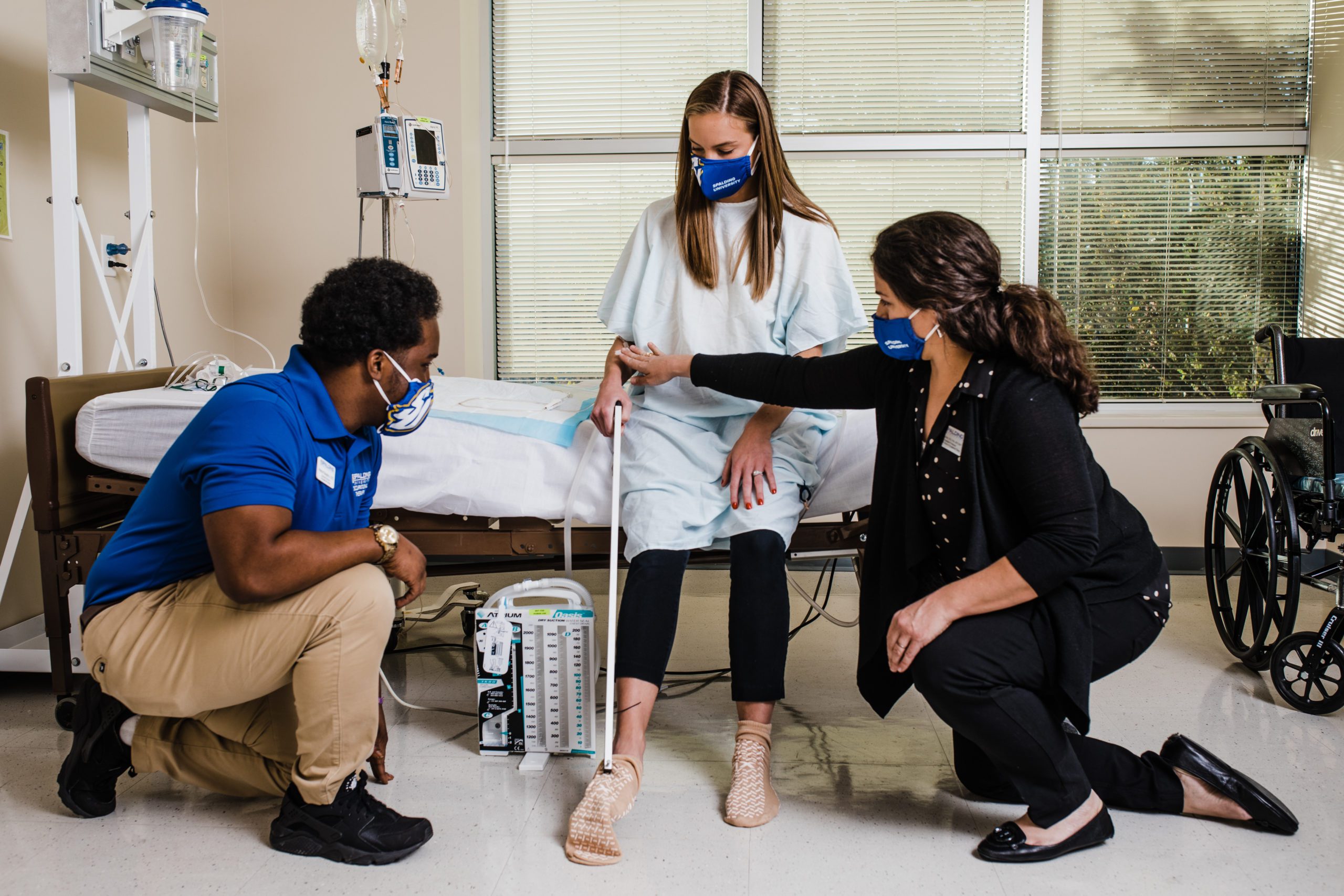
The COVID-19 pandemic has created a crisis of burnout and mental distress in our healthcare workers, resident physicians, and those training to be healthcare providers. This ongoing crisis has led to a need to enhance the education and training of students going into health related fields by adding instruction on well-being and resiliency. To support these efforts, Spalding University has been awarded a grant over $775,000 from the U.S. Department of Health and Human Services’ Health Resources and Services Administration (HRSA). The grant, awarded through the Public Safety Workforce Resiliency Training Program, will provide funding for resiliency training for healthcare students at Spalding University and the University of Louisville’s School of Dentistry.
The Cultivating Personal Resiliency Program will use evidence-based strategies to reduce and address burnout while promoting resiliency among health care students in the fields of nursing, social work, psychology, and dentistry. Dr. Brenda Nash, Chair of the School of Professional Psychology at Spalding and Dr. Abbie Beacham, Director of Behavioral Science at UofL’s School of Dentistry will research and evaluate the program to disseminate what is learned about best practices for reducing burnout in healthcare profession trainees. Our partnership makes this program both interdisciplinary and inter-university—teaching resiliency building skills to approximately 360 future healthcare professionals over the three-year program.
Dr. Nash states, “We are hopeful that the integration of such a focused self-care model into students’ early training will help to prevent their burnout as they begin into and progress through their careers.”
The problem healthcare professionals face is only increasing. Healthcare workers were in high demand before the pandemic, and now the need for professionals is at an all time peak. In addition, they are faced with new safety procedures, longer hours, and new methods for treatment.
As Dr Nash explains, “Training to be a human service provider is always stressful and demanding, but this has been compounded in the COVID era…With demonstrated efficacy already established for CPRP with physicians and other health care providers, we are thrilled to have the HRSA funding to bring this intervention to our providers-in-training.”
To provide resiliency interventions for our students, Dr. Abbie Beacham will utilize an evidence-based program to train a Clinical Coordinator, advanced doctoral psychology students, and faculty from each department to deliver the resiliency program to healthcare students. Utilizing a train-the-trainer approach, we will ensure both our students and faculty are equipped to continue providing resiliency training beyond the three-year grant cycle. In total, we anticipate training one Clinical Coordinator, 24 psychology students, and 16 faculty to deliver the model. Our goal is to create and advance a sustainable model for schools of nursing, social work, psychology, and dentistry to address and reduce burnout as well as promote resiliency among their students.